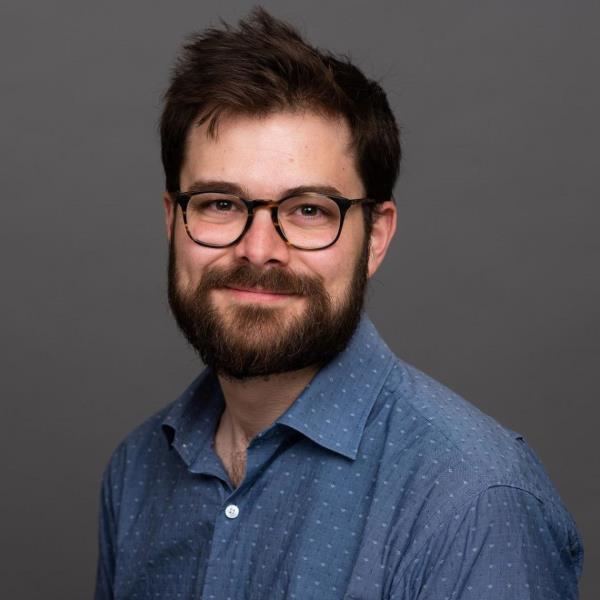By Thanasis Gavos
Cyprus News Agency
The Covid-19 pandemic has caused grief but has also shone the light on many unsung heroes.
One of them has to be Dr Edward O’Neill. A 30-year-old Australian postdoctoral researcher at Oxford University’s Oncology Department, he was one of the first two volunteers that on April 23 kicked off the first UK clinical trial of a vaccine hoped to fight the novel coronavirus.
It is the vaccine that has been developed by Oxford University’s researchers and one that they hope to be ready for mass production and use maybe even from September, if things move along according to plans.
Dr O’Neill has told the Cyprus News Agency that he learnt about the clinical trial through an email that was circulated in his department, as the initial phase of the trial will involve local volunteers who are able to have regular blood tests and be monitored by the researchers.
This first phase will have up to 510 participants, aged between 18 and 55. They all need to be healthy individuals. Some of the volunteers will be injected with the new Covid-19 vaccine and the others will get a ‘controlled’ anti-meningitis vaccine. None of them will know in which of the two group they fall.
“Then we are put out in the community and hopefully the number of infections in the controlled group is, unfortunately, higher that the one in the coronavirus vaccine group. That means that you can then compare and then determine whether it is actually effective in protecting, as well as a safe vaccine,” explains Dr O’Neill.
He stresses that the scientists have not asked him or the rest of the volunteers to do something in order to get more exposed or more frequently exposed to the coronavirus.
“They have told us to always follow whatever is recommended by our public health authorities in terms of protecting ourselves. We don’t want to spread the virus ourselves, so we are going to be contained. If I do get infected, then I will make sure I am not going out in the community and spreading it further. It is also not really ethical to actually infect people with the coronavirus, because it is such a nasty virus. They are relying upon the fact that there is active outbreak and that there are a certain number of people in the community with it, so that hopefully by chance there will be enough people in that group infected.
“But in order to ensure that there is a sufficient number of people exposed, the trial is going to be rolled out in other regions of England, to see if there is a greater risk of exposure, particularly with frontline healthcare workers, who might therefore be unfortunately more exposed to the virus. Therefore, we may be able to get a comparison earlier as well.”
Dr O’Neill moved to Oxford from Sydney a couple of years ago and he usually spends his working day in a lab, exploring ways to beat cancer. As a researcher himself, he declares his confidence in the science behind the vaccine.
“In the news reports you can here times such as 12 or 18 months for a vaccine. So it sounds like this study is almost being rushed. But really, it is years in the making. The scientist behind it, the research team at the Oxford University, have been working on this for years. Although we haven’t actually had this novel coronavirus, ‘novel’ for that purpose, they ‘ve actually been working on other coronavirus vaccines, like the one for Mers,” notes the Covid-19 vaccine volunteer.
Still, as a father of a three-year-old boy, he must have had some hesitation in applying for the clinical trial?
“There is always an element of risk, an unknown, but in this case, I think it was an acceptable risk, because what is not acceptable is the potential risk of coronavirus itself. I did discuss it with my wife, and we discussed the potential risk, but we also know that the coronavirus itself is a nasty virus. I had a look at the literature myself and I had a look at the evidence and the design of the study and I came to the conclusion that it was worth the acceptable risk and that I trust in the scientists in this.
“Also, in matters where you have uncertainty in life, you have to walk in faith and I think you actually have to walk with an idea of what you trust, what do you know. I trust the scientists have done the work. I’m not just going to go with my gut response ‘oh, it’s a needle’ and be scared. I want to go based on what I know, that the coronavirus is really harmful. I view it that the virus is worse, way, way worse than any potential risk of the vaccine.”
Dr O’Neill explains, lastly, what it would mean to him personally if the vaccine proved to be effective and he was one of the first to contribute to its success.
“I think it’s quite significant to see the world being able to bounce back from all this. I think I am also sharing the grief of the fact that the world has been struck down, and I would like for the world to get back to normal. I personally am happy to play a part, but the reality is that a lot of the hard work, all the hard work actually, has been done by the scientists working over the years for this. All I did was sign up and get a jab in the arm.”
(CNA)






